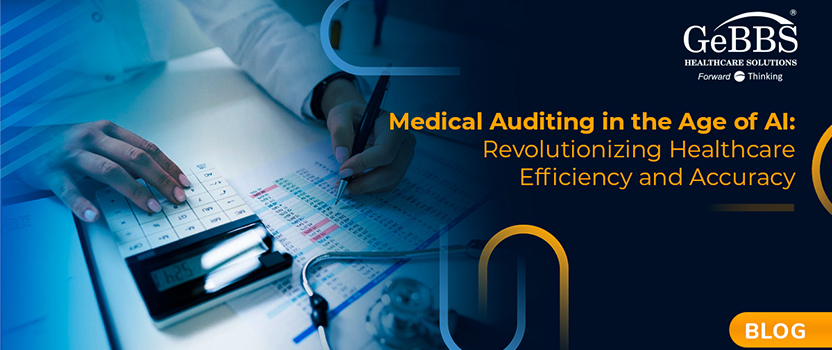Over the last few years, the global revenue cycle management market has grown substantially, creating new opportunities at every turn.
Revenue cycle management (RCM) encompasses the various components of the financial process for patients receiving medical care. RCM technology tracks every aspect of the patient care episode, from the moment they check in to when they pay off their final balance.
Due to the complexity of the modern healthcare system, RCM solutions have become a valuable tool for providers.
While the technology was developed out of necessity, two key factors have fueled the market’s dynamic growth. The combination of surging patient volumes and the expansion of the outsourced RCM service segment have prompted many healthcare providers to replace their outdated legacy systems with this innovative solution.
RCM Market Outlook
While patient volume was increasing before the spring of 2020, COVID-19 has accelerated this trend exponentially. During the pandemic, providers encountered a variety of unprecedented challenges, including disruptions to the traditional revenue cycle management process.
These events exacerbated the limitations of legacy patient management software and demonstrated a need for more dynamic RCM technologies.
According to Grand View Research, the RCM market size was approximately $120.7B at the beginning of 2020. The market’s compound annual growth rate (CAGR) is expected to be 11.2% from the years 2021 to 2028.
Not only is the total RCM market set to grow by more than 10% year over year, but outsourced RCM services and external apps are also predicted to become more prevalent.
Grand View Research projects that providers are going to transition away from in-house software solutions in favor of more economical options. Many organizations are going to rely on external apps and software, outsourced RCM services, or a combination of both.
This comes as no surprise because developing and maintaining RCM architecture is an incredibly complex undertaking.
What Is Driving This Growth?
The healthcare system and the revenue cycle management process are complicated constructs. As a result, the growth of the RCM market cannot be attributed to any single event.
The increase in market size is likely due to many interconnected factors. Let’s discuss a few of them now.
Increasing Patient Volumes
Hospitals, outpatient care facilities, and other providers experienced a record volume of patients during the height of the coronavirus pandemic. As these numbers begin to return to normal, it is clear that the legacy systems used by most providers cannot handle a rapid surge in patient volume.
Healthcare systems across the globe are taking steps to ensure that they are better positioned for the next global health event or regional natural disaster that may tax their existing technological resources.
With this in mind, many organizations are finally making the switch to RCM technology. This more robust solution is capable of tracking every stage of the patient care experience, which creates opportunities for better record keeping and streamlined billing practices.
Expanded Access to Outsourced RCM Services
Just a decade ago, the idea of outsourcing RCM seemed foreign. Few, if any, of the leading healthcare technology vendors offered these kinds of solutions. However, the surging demand for AI and cloud-based deployment solutions changed all of this.
Now, industry leaders are offering revenue cycle management and health information management solutions. Providers have the opportunity to outsource their RCM needs without compromising the patient care experience or the security of their confidential data.
Massive Data Management Needs
Most aspects of the revenue cycle management process have been digitized. The clinical, administrative, and financial components of the RCM process are no longer tracked using paper documents.
While this transition has streamlined the revenue cycle and improved patient care, it has also created a need for substantial resources for data management.
RCM solutions can automate redundant processes as they relate to data management. This reduces administrative costs, eliminates potentially expensive data entry errors, and allows healthcare organizations to operate more efficiently.
High Costs of In-House IT Resources
While all healthcare organizations need some type of in-house IT, employing a team large and skilled enough to deploy, maintain, and optimize RCM technologies is incredibly costly.
Outsourcing RCM solutions allow providers to mitigate the cost of ownership while also getting vital access to IT resources. This is especially beneficial for smaller healthcare facilities and networks, including those in rural areas or emerging nations.
Potential Challenges to RCM Market Growth
Perhaps the biggest challenge to continued RCM market growth are concerns surrounding the security of these technologies. Due to the stringent confidentiality and cybersecurity regulations that providers face, many organizations are hesitant to transition away from their legacy systems.
However, the top RCM solutions make use of the latest artificial intelligence technologies and encryption software. This end-to-end RCM experience ensures that patient data remains secure while also increasing the efficiency of the entire revenue cycle.
The second significant barrier to RCM market growth is cost. Most providers are concerned about the financial investment involved with transitioning to modern RCM technologies. Before the expansion of the outsourced services segment in the RCM market, this was a valid concern.
Fortunately, outsourced RCM solutions have remedied the issue. RCM technologies are more accessible than ever. Even small providers can implement these efficient software solutions. An RCM services provider can create tailored solutions that meet the needs and budgets of healthcare facilities of all sizes.
The Solution
Comprehensive revenue cycle management solutions can be a valuable resource to your organization. But developing and deploying these technologies via your in-house IT team can be incredibly expensive and present a host of potential challenges. The most pragmatic solution? Partnering with an industry leader in the outsourced healthcare RCM space.
GeBBS Healthcare Solutions offers a full suite of revenue cycle management tools and services. Our deep understanding of the healthcare revenue cycle allows us to provide your organization with tailored RCM solutions that cut through the complexity. We take a sophisticated approach that leverages operational excellence and the expertise of a highly talented team.
To learn more, contact our team or schedule a consultation today.






